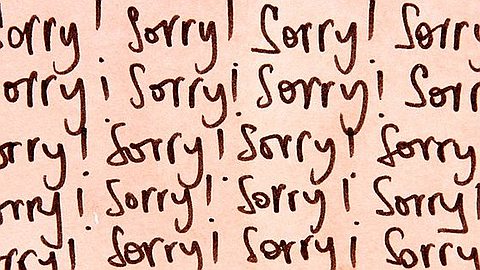The Power of Rituals in Life, Death and Business

Image by Forbes India
All over the world, people in pain turn to rituals in the face of loss—no matter if it's the death of a loved one (dressing in black, for example), the end of a relationship (burning old love letters), or the crushing defeat in a Little League baseball game (graciously shaking hands with the winning team). But what's the point?
Behavioral scientist Michael I. Norton became interested in mourning rituals after reading Harvard University President Drew Gilpin Faust's This Republic of Suffering, which describes elaborate ways that parents, spouses, children, and friends dealt with the massive loss of soldiers during the American Civil War. It got him to wondering whether rituals were merely a traditional part of the grieving process, or whether they truly alleviated grief.
"We see in every culture—and throughout history—that people who perform rituals report feeling better," says Norton, an associate professor in the Marketing unit at Harvard Business School. "But we didn't know if the ritual caused the healing."
“We see in every culture—and throughout history—that people who perform rituals report feeling better.”
What followed was a series of experiments in which Norton and fellow HBS Associate Professor Francesca Gino found that rituals indeed alleviate and reduce grief, even among people who don't inherently believe in the efficacy of rituals. Further experiments showed that ritualistic behavior also enhances the experience of consuming food—including food as mundane as a carrot. Future experiments will delve into whether rituals affect productivity and morale in the workplace.
A sense of control
Norton and Gino teamed up to conduct a series of grief experiments, which they describe in the paper "Rituals Alleviate Grieving for Loved Ones, Lovers, and Lotteries," forthcoming in the Journal of Experimental Psychology: General.
In one experiment, the researchers set out to determine whether rituals led to an increased sense of control, and whether that sense of control served to alleviate grief. To that end, they asked 247 individuals (recruited from Amazon.com's Mechanical Turk marketplace) to write about either the death of a loved one or the death of a relationship. Some participants were asked to include a description of a ritual they performed after suffering the loss; others were not.
Norton and Gino were surprised to discover that the majority of the recounted rituals were neither religious nor communal. Rather, they were personal, private, and occasionally angry—but in a controlled way. "We observed some amazing rituals," he says. "One woman wrote about gathering all the pictures of her and her ex-boyfriend, taking them to the park where they met, and tearing them up-she made a point of saying 'even the ones where I looked good,' which I loved."
After the writing exercise, all the participants completed a questionnaire, using a numbered scale to recall how much they felt out of control after the loss, as well as the extent to which they still grieved the person. Those who had described a personal ritual also reported feeling both more in control and less aggrieved after the writing exercise, indicating the power of merely reflecting on ritualistic behavior.
Inducing grief of science.
To find out whether it was possible to assuage grief by performing seemingly meaningless rituals designed by someone else, Norton and Gino conducted a laboratory study in which they induced grief-inducing loss and assigned a ritual that they made up.
The experiment, however, did not involve inducing the loss of a loved one, Norton notes wryly. "As it turns out, we couldn't randomly assign people to break up with their significant other," he says. Rather, to create instant grief, the researchers held a series of sessions in which 9 to 15 college-aged participants learned that one of them, picked at random, would receive $200—a significant windfall for the average student. In each session, the winner took the money and left the room. And just like that, the rest of the participants were left with a sudden sense of loss.
The researchers then split the newly disappointed participants into two groups: The "ritual" condition group performed a series of ritualistic tasks including drawing a picture about their current state of mind, sprinkling salt on the drawing, tearing up the drawing, and silently counting to 10. The "non-ritual" condition participants only drew a picture. After the experiment, the ritual group reported feeling more in control and less bummed out about the $200 than the non-ritual group.
Importantly, the researchers found that the rituals had a positive effect regardless of whether the participants held preconceived notions about ritualistic behavior. "That was a crucial question for us," Norton says. "We thought that people who habitually use rituals might get a benefit. But these results show that regardless of your belief, if we induce you to perform rituals, you feel better."
Rituals enhance consumption
Just as there are multitudes of grief rituals all over the world, so too are there innumerable rituals related to feasting, ranging from cultural (a Japanese tea ceremony) to personally quirky (eating all the green M&Ms first). "Given that there are so many rituals associated with food, we next explored whether rituals could even make food taste better," Norton says.
In a series of experiments conducted along with University of Minnesota marketing professor Kathleen D. Vohs and doctoral candidate Yajin Wang, Norton, and Gino found that rituals indeed have the power to make food seem tastier and more valuable. Their research findings are presented in the paper "Rituals Enhance Consumption," forthcoming in Psychological Science.
"We made the rituals deliberately silly," Norton says. "With rituals like wine-tasting and tasting menus, some of the enjoyment is about pageantry and great service. We wanted to strip those factors away and focus on the rituals themselves."
In one experiment, participants were asked to eat a chocolate bar. Half performed an assigned ritual, breaking and unwrapping the bar in a particular way before eating it. The other half just ate the bar unceremoniously. On average, those in the ritual group reported the candy more enjoyable and more flavorful than the non-ritual group.
A follow-up experiment showed that participants in the ritual experience actually thought the chocolate bar was worth more money than those in the non-ritual group-thus showing the retail marketing potential for food-related rituals. The Hershey Company, for example, capitalized on the power of personal food rituals with its 1990s ad campaign for Reese's Peanut Butter Cups: "There's no wrong way to eat a Reese's." Nabisco has used similar tactics in advertising Oreo cookies.
To see whether they could achieve the same effect with something less exciting but more nutritious than a chocolate bar, the researchers repeated the experiment with the least thrilling food they could imagine: carrots.
Sure enough, participants who performed a series of gestures before consuming the carrots reported more enjoyment than those who just ate them. (Norton notes that parents have been employing this technique for time immemorial—ritualistically pretending that a spoonful of pureed peas is, say, "a plane coming in for a landing" in order to make it more appealing to babies.)
Another experiment showed that observing a ritual is not nearly as powerful as performing a ritual. Participants who prepared a glass of powdered lemonade in a ritualistic manner (stir for 30 seconds, wait for 30 seconds, and so on) enjoyed consuming it much more than those who merely watched someone else prepare the lemonade.
"With grief, the ritual leads to a feeling of control," Norton says. "With consumption, rituals seem to work because they increase your involvement in the experience."
Employee morale and productivity
Later this year, the researchers plan to study how rituals affect productivity and morale among teams in the workplace—think trading high-fives at the beginning of a meeting. Norton believes that their grief findings may apply to corporate competition. "When teams lose a big sale, maybe a ritual will help them get over that loss," he says.
More broadly, they are sussing out the specific factors that classify a behavior as ritualistic rather than obsessive. "The line between rituals and other behaviors is very blurry," Norton says. "If you tear up a picture of your ex, that may be a helpful ritual. If you call your ex every day for a month and yell at him, you may need a different kind of help."





